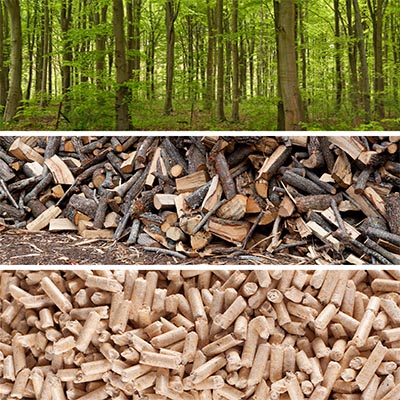
Third-party certification
ENplus® operates as a third-party certification scheme. Behind this expression lies the guarantee of our total impartiality. It means that the conformity is assessed by accredited organisations, and that the developments and updates brought onto our requirements are made in complete independence. In short, pellet quality is the only ulterior motive.
Certification Bodies
Certification Bodies are independent organisations that are recognised to perform certification within the ENplus® certification scheme. They are the bodies responsible for the whole certification process and for the verification of the compliance with the ENplus® requirements. The ENplus® certification bodies perform evaluation activities such as ::
- inspection of the client’s equipment, facilities, processes, and management system and collection of samples for testing, including any site of a multisite company;
- testing activities in case of pellets production and bagging (both producers and traders).
ENplus® listed certification bodies are accredited against ISO/IEC 17065 with a scope on the ENplus® standards and are approved by the ENplus® International Management.
Testing Bodies
Testing Bodies are in charge of conducting a set of standardised laboratory test on product samples. The results are then communicated to the selected Certification Body which is one of the criteria for successful certification.
ENplus® listed testing bodies are accredited against ISO/IEC 17025 with a scope on the ENplus® standards and are approved by the ENplus® International Management.
What does ENplus® certify?
Within the industry, ENplus® has become a worldwide synonym for quality in less than a decade. The certification scheme largely owes its success to its wide scope, encompassing the entire wood pellet supply chain. From the early stages of production to the delivery process, we make sure that all actors have detailed guidelines, efficient monitoring procedures, and dedicated training at their disposal to ensure high and consistent quality levels.
Of course, the pellets themselves must also meet a variety of technical specifications. In addition to length and diameter, ENplus® pellets are also tested for mechanical durability, percentage of fines, bulk density, ash and moisture content, calorific values, and the percentage of additives. All this to guarantee that pellet appliances fueled with ENplus® pellets will perform at their best, with no hassle, and for a long time.
Standard and Certification
To fully grasp the raison d’être of the ENplus® scheme, it is essential to distinguish a standard from a certification. A standard defines a specific set of requirements, specifications, or characteristics of a product, process or service. Standards are managed by international bodies such as ISO or CEN, and based on the expertise and contributions from various stakeholders. While certain pieces of legislation may refer to it, standards serve as guidelines and not as a legally binding framework.
A certification is the proof that a product, process, or service meets specific requirements. These requirements are typically laid out in an international standard, but they may also vary from it. It is the case for the ENplus® scheme for example, whose requirements are largely based on the ISO 17225 standard but go further on some specific aspects.
In essence, certification schemes such as ENplus® save consumers the tedious task of checking product characteristics against the ISO standard by conducting a systematic, streamlined verification process. That’s why it is essential for a certification scheme to be transparent and independent, to protect its trademark and to combat fraud everywhere to ensure that the seal can always be trusted.
